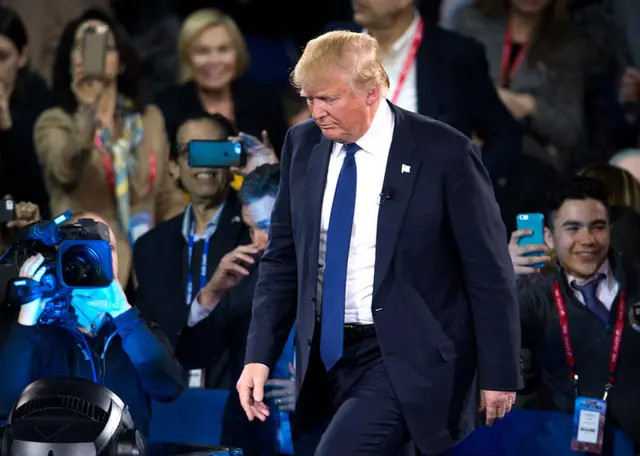Controversial U.S. presidential candidate Donald Trump has expressed a dislike for the North Atlantic Treaty Organization (NATO), but experts say that he would have limited powers to dismantle the nearly 70 year- old organization even if he is elected president.
Trump on Sunday told U.S. commercial broadcast TV network ABC' s "This Week" that the Cold War-era NATO, headquartered in Brussels, Belgium, was "obsolete," after a horrific terror attack in the city last week. The New York billionaire added that NATO is not concerned with terrorism, and does not have the right member states to address the problem.
"NATO was done at a time you had the Soviet Union, which was obviously larger -- much larger than Russia is today. I'm not saying Russia is not a threat ... but we have other threats. We have the threat of terrorism," Trump said on the show.
The statements came after a devastating terror attack in Brussels, Belgium, a week ago, that so far has claimed 35 lives. The attack saw terrorists set off three simultaneous nail bombs in Brussels, with Islamic State (IS) claiming responsibility.
IS has overtaken vast swaths of territory in Syria and northern Iraq, and has proved itself able to conduct attacks outside of its area of control, such as November's terror attacks on Paris that killed 130 people and injured nearly 400.
Trump has blasted U.S. President Barack Obama for what he has described as a weak response to IS, echoing the thoughts of many in the Republican Party who believe the president has been incompetent in tackling the threat.
Trump has gained points among his supporters for his tough talk against terrorism, at a time when IS is on the rise and has proven its ability to conduct attacks outside of the Middle East. But the question remains how serious he was about those statements, as the brash businessman often speaks off the cuff without bothering to think through his long-term policy objectives, critics say.
"A president doesn't have the power unilaterally to dismantle major military agreements, but he certainly can weaken and undermine those pacts," Brookings Institution's senior fellow Darrell West told Xinhua, answering the question of whether a U.S. president can pull the plug on NATO. "By decisions on budget and personnel, a chief executive can exert tremendous influence over how the United States relates to other countries and what our foreign priorities are. He can shift money across regions and deploy forces in whatever way he and the generals think is appropriate."
He said a significant shift away from NATO would have negative consequences for the United States.
"Dismantling NATO would send a very negative signal around the world because it would demonstrate that the United States is not a reliable ally and countries cannot count on Washington for ironclad support when things get tough," West warned.
Still, U.S. Congress would be unlikely to approve any funding for radical changes to NATO.
"Congress would have to approve any funding associated with this kind of policy change and it is unlikely it would do so. This is regardless of whether there is Republican or Democratic control of Congress," West said. Enditem
 简体中文
简体中文

